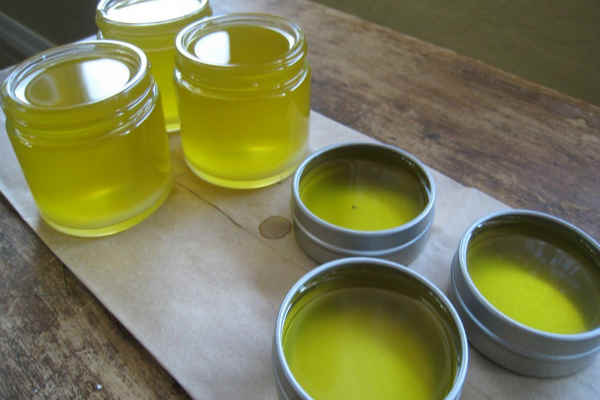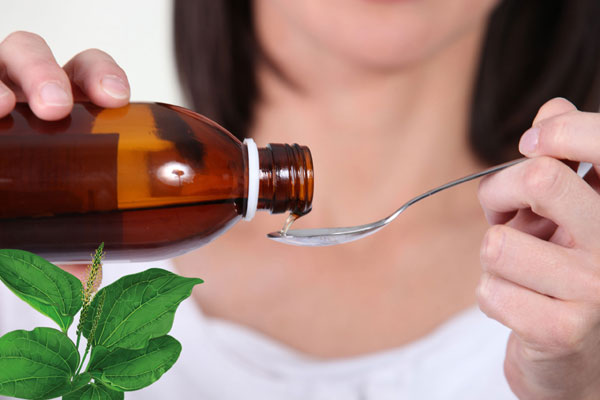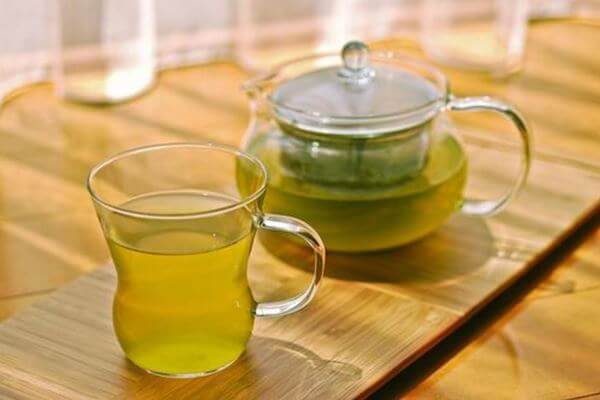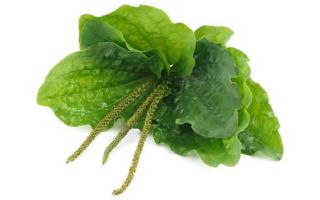Content
- 1 The chemical composition of plantain
- 2 Useful properties of the plant
- 3 Is it possible to plantain during pregnancy
- 4 Medicinal properties of leaves and seeds
- 5 The benefits of psyllium husk
- 6 Variety of folk recipes
- 7 The benefits of plantain tea
- 8 Plantain in cooking
- 9 Collection and storage of raw materials
- 10 Plantain harm and contraindications
- 11 Conclusion
Plantain is a medicinal plant that has an anti-inflammatory, mucolytic, calming effect. The beneficial substances in the plant make it possible to use it for the manufacture of pharmaceutical medicines. This herb can also be taken in the form of decoctions and infusions. Consider the benefits and harms of plantain and how to use it correctly for various diseases.
The chemical composition of plantain
Both the seeds of the plant and its leaves and stems differ in their rich composition. Plantain herb leaves contain:
- organic acids;
- polysaccharides;
- tannins;
- alkaloids;
- carotenoids;
- vitamins C, B4, K.

The stems contain flavonoids and phenolcarboxylic acids. The seeds contain the following substances:
- up to 45% mucus;
- up to 20% fatty oils;
- oleanolic and oleic acids;
- tannins;
- steroidal saponins.
Saponins are the substances that make the plantain a common cough. They are the ones that liquefy phlegm.
Useful properties of the plant
Many people are familiar with the useful characteristics of plantain since childhood. Its most famous properties:
- anti-inflammatory;
- hemostatic;
- pain reliever;
- anti-infectious.
The main health benefits of plantain lie precisely in its anti-inflammatory effect. However, its benefits are not limited to this.
For women
Plantain seeds are useful in the treatment of adnexitis, endometritis, climacteric disorders and other gynecological diseases. Also, the plant has a stabilizing effect on the hormonal background of women.
Cosmetics based on medicinal herbs are also popular. With the help of infusions of the plant, you can moisturize dry skin. To do this, the infusion must be mixed with starch, apply the composition to the face and leave for half an hour.

For men
The medicinal herb is also good for men's health. Due to its anti-inflammatory effect, the plant helps to treat diseases of the male reproductive system. The seed decoction is often used to treat infertility and prostatitis.
For children
For generations, bruises and cuts in children have been treated with the plantain leaf. Crushed into gruel or a whole leaf is applied to the wound to stop the blood and soothe the pain.
Leaves can be applied not only for cuts, but also for burns and insect bites. The plant will relieve the burning sensation and give a cooling sensation to the skin.

The plant leaf extract mixed with almond oil and beeswax helps with diaper rash in babies. For massage, you can use an ice cube wrapped in a plantain leaf. This will protect the baby's skin from breakouts.
Is it possible to plantain during pregnancy
Pregnant women need to use plantain with caution. Not all medicinal plants are subject to laboratory testing. It is impossible to say with accuracy what effect the plant will have on the body of the fetus and the expectant mother.Therefore, plantain is not usually used to treat pregnant women.
Medicinal properties of leaves and seeds
Let's consider the action of the leaves and seeds of a plant in more detail. The leaves have the following medicinal properties:
- Help with colitis and cholecystitis.
- Promotes cough treatment.
- Helps fight inflammation of the digestive tract.
- Increases appetite, improves bowel function.
- Increases the effectiveness of medicines used to fight cancer.
- Reduces the damage caused by chemotherapy.
- They soften the manifestations of neuroses, depression, stress.
- They are used in dentistry for the treatment of stomatitis, periodontal disease, periodontitis and gingivitis.
- They have a diuretic effect.
- They have a beneficial effect on blood pressure.
The leaves have not only a healing but also a cosmetic effect. Thanks to this, they are included in masks, creams and skin lotions.

The seeds of the plant are no less useful:
- Mucus in their composition tends to envelop the mucous membranes of the stomach and intestines, relieving discomfort during irritation.
- The use of seeds prevents the development of atherosclerosis, heart disease.
- Seeds lower cholesterol levels.
- A decoction of plant seeds is an effective remedy for enuresis.
- The seeds have a diuretic effect and are able to relieve puffiness.
- The decoction of the seeds helps to treat conjunctivitis and other inflammatory eye conditions.
The benefits of psyllium husk
The husk of the seeds of a plant is formed after their splitting. Thanks to its fiber, psyllium husk helps relieve constipation. In addition, the husk has the following properties:
- Helps relieve bladder problems.
- It is used in the treatment of hemorrhoids.
- Reduces blood pressure by normalizing heart function.
- Used as a thickener in cooking and cosmetology.
- Normalizes the stomach and intestines.
- Cleans the body of toxins and removes toxins.
The husk of the plant's seeds is even included in diets. The husk diluted with water swells, causing a feeling of fullness.
In addition, for the normal functioning of the digestive system, the body needs beneficial bacteria, the reproduction of which is supported by the seed husks.

Variety of folk recipes
Plantain is used in folk medicine for the manufacture of infusions, decoctions, ointments. Medicinal juices and syrups are made from it, which help with various diseases. Most often, plantain decoctions are used for coughs, since they have the properties of thinning phlegm and eliminating it from the body.
Plantain decoction for cough
To treat cough with plantain, useful decoctions are prepared from the plant. 2 tbsp. l. leaves are poured with boiling water and heated in a water bath for 20-30 minutes. Then the broth is cooled and filtered. The tool should be drunk in 3 divided doses during the day, preferably before meals.
Decoctions are also prepared from plant seeds. 10-15 g of seeds should be poured with 200 ml of water, left for 2 hours and filtered. You need to drink the drug warm, 50-60 ml several times a day.
Such drinks contribute to recovery not only for the common cold, but also for bronchial asthma, tuberculosis and pneumonia.

Plantain infusion
Plantain infusion is good for the stomach in case of low acidity. To prepare it, you need to pour 1 tbsp. l. dried leaves with a glass of boiling water, leave for 10 minutes and drain. The infusion should be divided into several parts, which should be drunk in one hour. You need to use such a remedy daily - it will help normalize stomach motility and relieve spasms.
An infusion of plantain seeds also helps to fight upset stomach. To prepare it, you need to pour 1 tbsp. l. seeds 100 ml of boiling water. Next, the product is left to infuse for half an hour. It is better to drink the infusion 30 minutes before meals, 1 tbsp. l.
Plantain tincture
Tincture is a good remedy for treating damage and inflammation.To prepare it, you need to take 100 g of dried plant leaves, pour them 1 tbsp. vodka, close the lid and keep in a cool dark place for 14 days. Next, the product needs to be filtered, and then the tincture is ready for use.
This tincture is useful in the treatment of otitis media. Cotton swabs soaked in tincture should be inserted shallowly into the ear and kept for 30 minutes. The tincture is also used to treat throat and oral injuries. For rinsing, the tincture is diluted with water in a ratio of 1:10.
Plantain juice
The plant sap has both medicinal and cosmetic effects. The main ways to use it are as follows:
- With its help, the skin of the face is cleansed. The juice has the ability to relieve inflammation, heal acne and make the skin look healthier. For use, the juice is frozen in molds and rubbed with frozen cubes on the face.
- Plantain juice is used to make homemade soap.
- It helps to acidify the stomach and treat colon inflammation.
- The sap of the plant is used to eliminate festering wounds and their faster healing.
- The remedy helps to heal corneal wounds.
- The juice is taken to alleviate the condition with acute colitis, enterocolitis and gastritis.
The sap of the plant is squeezed out of the leaves of a large plantain. The finished product is sold at the pharmacy. It is easy to cook it yourself using a juicer or mortar. After squeezing, the juice must be filtered through cheesecloth.

Plantain syrup
Psyllium syrup is used for coughs. Thanks to its pleasant sweet taste, this product is suitable for children. It takes about 2 months to prepare a homemade potion.
The syrup recipe consists of several steps:
- Rinse young plantain leaves and grind them in a blender or meat grinder.
- Lay a three-liter jar in layers, alternating a layer of sugar with a layer of a mass of crushed leaves. The bottom should be covered with sugar, and the top layer should also be sugar.
- Close the jar tightly with a lid and place in a warm place.
- After a while, syrup will periodically begin to form in the jar. It must be drained into a separate container.
The product must be drunk in 1 tbsp. l. three times a day with meals. You can increase the dosage only after a doctor's recommendation.

The benefits of plantain tea
Another useful plantain-based remedy is medicinal tea. To brew a drink, you need 2-3 tsp. dried leaves and 250 ml of boiled water. Tea is infused for 15-20 minutes. It is advisable to drink up to 3 glasses of tea a day.
This tea is effective for the following diseases:
- asthma;
- cough;
- tuberculosis;
- pleurisy;
- whooping cough, etc.
The tea compress also helps to relieve eye inflammation and reduce external swelling.

Plantain in cooking
The healing plant is also used in the preparation of various dishes. The benefits of plantain salad are to normalize the digestion process, strengthen the immune system. The leaves will add freshness to meat dishes and side dishes; even plantain cabbage soup is delicious.
Collection and storage of raw materials
It doesn't take much time to find plantain - the plant is ubiquitous. Plantain is easy to recognize by its short rhizome, oval leaves and long petioles.
It is better to collect raw materials in warm and dry weather.
The best time to harvest is from May to August. The leaves are not cut off, but carefully cut with scissors. It is important to avoid yellowed or reddened leaves. Leaves damaged by insects should also not be used.
Seeds need to be harvested only when they are fully ripe - this is the end of August and the first half of September. After harvesting, the seeds must be sieved.
To dry the seeds and leaves, lay them on a cloth or paper and leave them under a canopy outdoors. When the plantain begins to dry out, you should get rid of yellowed and crumbled leaves. It is advisable to store the remaining leaves in wooden boxes, glass jars or paper bags in a warm, ventilated area.

Plantain harm and contraindications
The harm of this harmless herb is not obvious, but sometimes it can really do harm. It is prohibited to take plantain funds inside in the following cases:
- tendency to thrombus formation;
- allergy and tendency to it;
- varicose veins;
- increased acidity of the stomach;
- individual intolerance.
The use of a product for external use usually has no contraindications.
Conclusion
Plantain is a medicinal plant familiar to many generations. It is recommended to use it only after carefully studying the benefits and harms of plantain. The advantages of this herb outweigh the disadvantages - it is useful for wound healing, in the treatment of coughs, in the digestive system and in many other cases. The plant can inflict harm only if there are any pathologies in the body.

